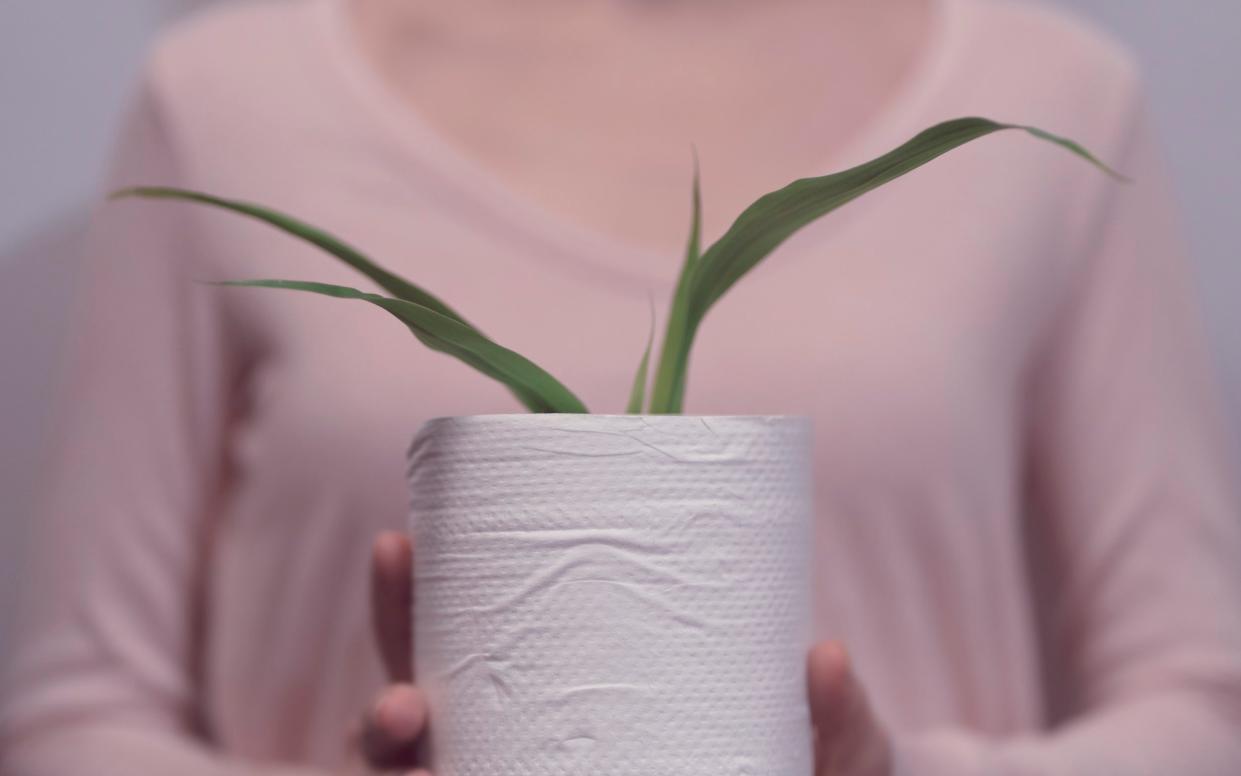Eco-friendly lavatory paper companies found to be misleading consumers

“Eco-friendly” lavatory paper companies have been found to be misleading consumers over claims their products are made with 100 per cent bamboo.
Fibre-composition testing carried out by consumer champion Which? on five popular brands claiming to be “bamboo only” or “100 per cent bamboo” revealed some contain tiny amounts of the material.
Samples from Bumboo showed just 2.7 per cent of its lavatory paper is composed of bamboo, a fibre often touted as a green alternative to virgin pulp, while brands Naked Sprout and Bazoo contained 4 per cent and 26.1 per cent respectively.
Instead, the products were shown to be made from less eco-friendly fast-growing virgin hardwoods, such as eucalyptus.
Acacia, which has been associated with damaging deforestation in places such as Indonesia, was also found in small levels in Bazoo and Bumboo’s lavatory paper.
Bazoo, Bumboo and Naked Sprout advertise themselves as sustainable brands, with Bazoo claiming it is “100 per cent tree free” and Bumboo citing its “FSC-certified 100 per cent bamboo from well-managed forests”.
Naked Sprout claims it sells the “UK’s most sustainable tissue products”, and told Which? its products are “bamboo only”.
All three companies source their bamboo from China, and say they use Forest Stewardship Council (FSC)-certified bamboo.
Ensuring quality control
Which? said the findings highlight the challenges UK firms can face with ensuring quality control when materials for their products are sourced from overseas countries such as China.
Two other brands, Who Gives a Crap (WGAC) and The Cheeky Panda, were also tested by Which?, and were shown to contain 100 per cent bamboo, as claimed.
Emily Seymour, Which? sustainability editor, said: “Given so many shoppers are taking steps to be more sustainable, it’s vital they can trust claims made by brands – particularly when they are paying more for a product they believe is better for the environment.
“Businesses must take responsibility for ensuring their products contain what they say on the packaging so that shoppers who want to make sustainable choices can trust the information they are given.”
Bumboo said it “had identified an issue in [its] supply chain and taken swift action so this can never happen again”.
It said it was now using the “gold standard” TAPPI T 401 test to verify the fibre composition of every batch and publishing the results on its website.
Bazoo said it undergoes extensive auditing with the FSC. It also told Which? its bamboo manufacturer is 100 per cent FSC-certified and this is checked and audited every six months, and it is investigating this currently with the FSC body and its manufacturer in depth.
Strict audit trail
Naked Sprout – which last month announced it would be the official toilet roll supplier for this year’s Glastonbury festival – said that the bamboo pulp it uses is verified by a strict audit trail, also used by the FSC, of its supply chain and raw materials used.
It said its supply chain is deliberately small, consisting of only four suppliers and one manufacturer and, as a result, all materials used are FSC-certified and fully traceable from raw material to end product.
Which?’s testing was done at an independent lab using an industry standard test known as TAPPI T 401 that breaks down a sample of paper into its constituent fibres to quantify and identify them.
Naked Sprout claimed there were limitations with TAPPI T 401 and disputed the objectivity and validity of the test method.
TAPPI (Technical Association of the Pulp and Paper Industry) said it saw no contradictions in Which?’s application of the test method and that it “seems disingenuous” to suggest that a test method applied successfully to other brands tested for this article would be inadequate for Naked Sprout.
The FSC said: “We are concerned to discover that Which?’s fibre-testing of some FSC-labelled toilet rolls, claimed to contain only bamboo fibre, indicates that they are made using wood-fibre in addition to bamboo. Since being approached by Which?, we have contacted the brands in question to gather further information and alerted FSC’s Supply Chain Integrity Team to this case.
“FSC is the world’s most trusted sustainable forest management solution and from forest to store, we are committed to supporting credible supply chains. We take our integrity seriously and are committed to working with the organisations involved to ensure this is fully investigated and any appropriate action taken to ensure FSC labels accurately reflect the composition of FSC-certified products.”

